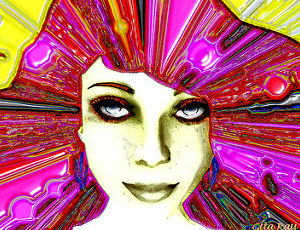Lucy, the narrator of Michelle Adelman's Piece of Mind, suffered a brain injury at the age of three and lives with her loving, protective family in Westchester County, New York. She can do many things, particularly draw animals and memorize facts about them, but is hopeless at others: moving gracefully, organizing, and other executive functions. When Lucy's father dies (her mother has been dead, if not gone, for years), she has to share a studio apartment in NYC with her brother, who also has to leave college and work long hours at a restaurant to support them. After he goes AWOL, Lucy starts to develop strengths she was not aware of possessing. This is a charming, quick read, and one cheers for Lucy, who may never be Martha Stewart, but over a summer grows into her own.
The narrator of Jonathan Lethem's Motherless Brooklyn has Tourette's Syndrome, which leads to some unusual behaviors (barking, counting, encounters with the English language that range from the poetic to making the former Mayor Daley sound like a Rhodes scholar) that lead him to refer to himself as the Human Freakshow. When HF's connected boss gets murdered, Lethem uses the incident to send up detective stories and the mystery genre. The Human Freakshow and his friends try to figure out who took their employer for a gangland ride: rival bosses, a Zen abbot, or someone working at the behest of his absconded widow? Part of the fun is figuring out whodunit, the greater part is being in the company and linguistic milieu of Lethem's inimitable protagonist.
While not formally diagnosed with Obsessive Compulsive Disorder, Mona Gray is definitely odd. That's okay, because so is almost everyone else in Aimee Bender's An Invisible Sign of My Own. Mona teaches math to second graders in idiosyncratic ways, but they love her and the subject. Mona loves numbers because they are immutable, unlike life. However, her quest for emotionlessness is diverted when a new math teacher comes to her school. He wears a number around his neck to indicate his mood. With help from a science teacher who has his students act out the symptoms of different diseases each week and a student struggling with her mothers' cancer, Mona Gray may actually start living again. This is a bit of a postmodern novel, with nary a quotation mark in sight. However, it fits in with Mona's first-person narration, which is somewhat stream of consciousness and quite charming.
Got a favorite book about people not wired quite like everybody else? Let us know in the comments.




Add a comment to: Adventures in Neuro-Atypicality